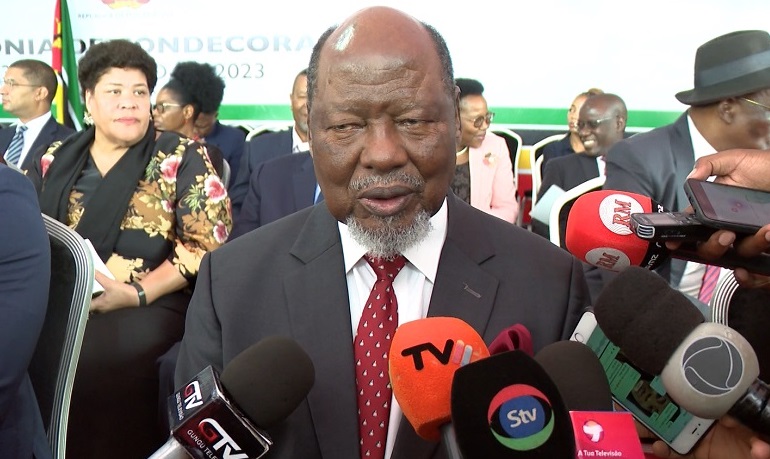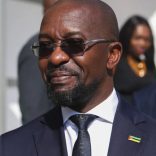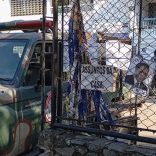Mozambique: Chapo arrives in Quelimane for Zambézia working visit - Watch
Mozambique: Former President Chissano defends “other ways” of approaching terrorism

Screen grab: TVM
Former Mozambican President Joaquim Chissano on Saturday defended the need for “other ways” of addressing terrorism in Cabo Delgado, acknowledging that the rebels employ guerrilla warfare, a model difficult for conventional forces to combat.
“It is necessary to continue fighting them with weapons to defend the population, but also to look for other ways to approach and defeat them,” Joaquim Chissano told the media on the sidelines of Mozambican Heroes’ Day celebrations in Maputo.
Chissano noted that rebel groups in Cabo Delgado are practising guerrilla warfare, which is “difficult to combat” and that requires the involvement of the local population.
“Guerrilla warfare generally uses small groups, small units,” explained the former head of state, recalling that the Mozambique Liberation Front (Frelimo) used guerrilla warfare during the liberation struggle against the Portuguese colonial regime.
“We did guerrilla warfare, we just didn’t do terrorism. Terrorism uses fear, even more so by applying terror,” Chissano stressed, pointing out that a “very large mobilization” of local populations is needed to address the problem.
The province of Cabo Delgado has been facing an armed insurgency for six years with some attacks claimed by the extremist Islamic State group, which has July 2021 led to a military response since with support from Rwanda and the Southern African Development Community (SADC), freeing districts near the natural gas projects in the province.
In recent days, new attacks and movements recorded after a period of relative stability in Cabo Delgado have raised renewed fears. Local authorities say the episodes are linked to the successful chasing of terrorists by the Defence and Security Forces in the districts of Macomia, Quissanga and Muidumbe, among others affected.
President Filipe Nyusi of Mozambique said on Saturday that the movement of extremist groups into new areas of Cabo Delgado aims to divert government forces, which are approaching the terrorists’ main bases.
“With this movement, [the terrorists] intend to divert the intention and advance of the forces towards the terrorists’ main positions. (…) Several terrorist outposts have been attacked and destroyed, causing terrorists to flee in small groups,” Filipe Nyusi declared at the same celebrations.
The conflict has already displaced one million people, according to the United Nations High Commissioner for Refugees (UNHCR), and caused around 4,000 deaths, according to the ACLED conflict registration project.












Leave a Reply
Be the First to Comment!
You must be logged in to post a comment.
You must be logged in to post a comment.